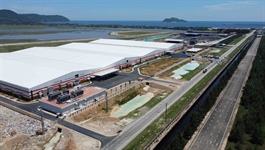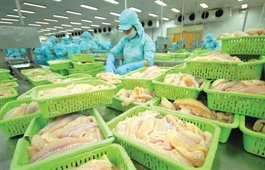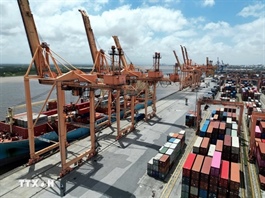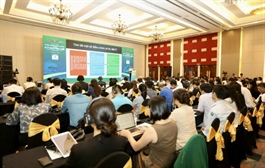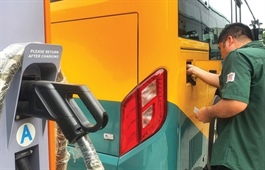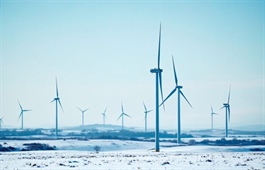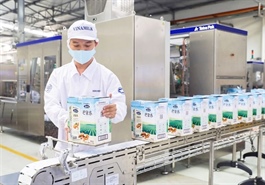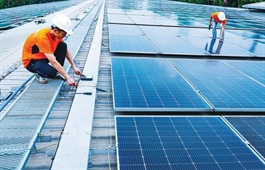Việt Nam eyes Africa as next export frontier amidst risks in traditional markets
Việt Nam eyes Africa as next export frontier amidst risks in traditional markets
With traditional markets tightening through tariffs, technical barriers, and declining demand, Africa offers a strategic avenue for Việt Nam to diversify its markets and supply chains.
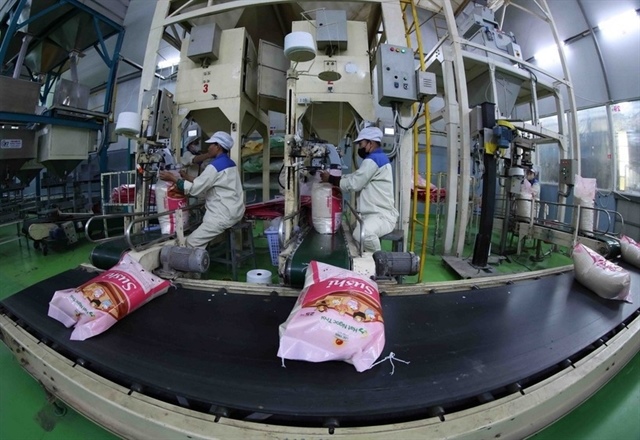
Senegal is a potential market for Vietnamese rice. —VNA/VNS Photo |
As unpredictable volatility grips Việt Nam's key export markets including China, Europe and the US, the Southeast Asian nation is shifting its focus to Africa which boasts huge potential with fewer technical barriers and an increasing demand for Vietnamese goods.
Over the recent past, Việt Nam has ramped up high-level diplomatic activities with African countries, with the most notable being the official visits to Senegal and Morocco by National Assembly (NA) Chairman Trần Thanh Mẫn, and the visits to Côte d’Ivoire and South Africa by Vice NA Chairman Vũ Hồng Thanh.
These high-level visits, accompanied by business promotion activities, are laying the groundwork for a new phase of economic cooperation between Việt Nam and Africa.
Boasting a population of over 1.4 billion, which is expected to surpass 2.5 billion by 2050, Africa is one of the fastest-growing regions in the world, marked by a rapidly expanding middle class.
Statistics show that Việt Nam shipped some US$4 billion worth of products to African countries while buying around $5.5 billion of goods from the continent. However, trade turnover remains modest.
African countries have an increasing appetite for agricultural products, essential consumer goods, machinery for agricultural production, and building materials, the areas in which Việt Nam has a competitive advantage.
Experts described Africa as a market with growing purchasing power, high profit margins, and fewer restrictive technical barriers compared to the EU, presenting significant opportunities for Vietnamese goods, particularly as traditional markets face increasing volatility.
According to Dr. Phan Chí Hiếu, chairman of the Vietnam Academy of Social Science, once the African Continental Free Trade Agreement (AfCFTA) is fully implemented, Việt Nam will have tremendous opportunities to boost exports to the region, as goods between the two sides demonstrate high complementarity.
The Vietnamese trade counsellors in several African countries said local consumers highly value Vietnamese product quality and pricing, especially natural and environmentally-friendly ones that meet basic standards.
While North African nations like Algeria and Tunisia show strong interest in Vietnamese agro-seafood products such as raw coffee, pepper, cashew kernels, coconut, and frozen pangasius and shrimp, nations in West Africa like Senegal seek rice, pepper, confectionery, and cereal products.
During the Vietnamese top legislator’s official visit to Senegal from July 22 to 24, Deputy Minister of Industry and Trade Nguyễn Sinh Nhật Tân signed a Memorandum of Understanding with Senegalese Minister of Trade Serigne Gueye Diop, under which Việt Nam will supply 100,000 tonnes of rice for the African country.
The rice trade deal aims to bolster food security and market stability in Senegal while mitigating the impact of climate change and natural disasters. For Việt Nam, it diversifies rice export markets and supports domestic farmers.
Navigating significant barriers
While opportunities abound, conquering the African market presents considerable challenges, including geographic distance, high transport costs, insufficient market information and incomplete legal frameworks.
Additionally, unstable international payments, weak logistics infrastructure, and political risks in several countries must be taken into account, experts advised.
A representative from the Ministry of Industry and Trade’s Department of Foreign Market Development suggested Việt Nam develop a targeted market strategy involving trade promotion, brand-building, and increased diplomatic and commercial presence in the region. Industry associations and businesses are encouraged to participate in trade fairs, establish distribution networks, and build long-term partnerships on the ground.
To support its businesses, the Vietnamese Government has stepped up negotiations and signing of agreements on trade, double taxation avoidance and investment protection, creating solid legal foundations for the bilateral cooperation.
Several trade development plans are already in motion, including those on enhancing trade ties with the African Union, boosting trade with Africa, and strengthening ties with the Middle East and Africa.
Việt Nam welcomes business delegations from the continent to attend major fairs like Vietnam Expo, Vietnam Foodexpo, and Vietnam International Sourcing to seek cooperation opportunities.
With traditional markets tightening through tariffs, technical barriers, and declining demand, Africa offers a strategic avenue for Việt Nam to diversify its markets and supply chains.
Currently, many Vietnamese corporations are beginning to explore African market. PAN Group, Vinamilk, Hòa Phát, Hapro, Intimex and Angimex have engaged in exports or market research across the continent. Additionally, state-run giants like Petrovietnam and Viettel have longstanding investments in Algeria and Mozambique. However, the number of Vietnamese enterprises present in Africa remains modest compared to the potential.
Experts underscored the need to establish logistics centres or transshipment warehouses in strategic locations like Senegal, South Africa, and Morocco to reduce delivery time and costs. Furthermore, cooperation in banking, insurance, and import-export supporting services should be enhanced.
Besides, with strong support from diplomatic missions and trade offices, Vietnamese businesses will be confident in exploring, expanding, and sustaining their presence in this potential region.
- 13:03 30/07/2025



